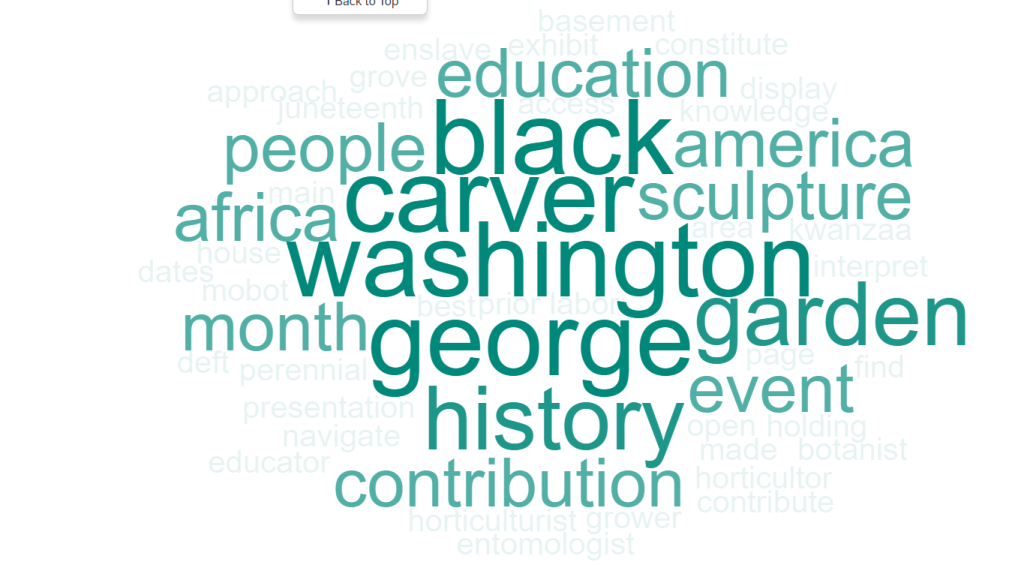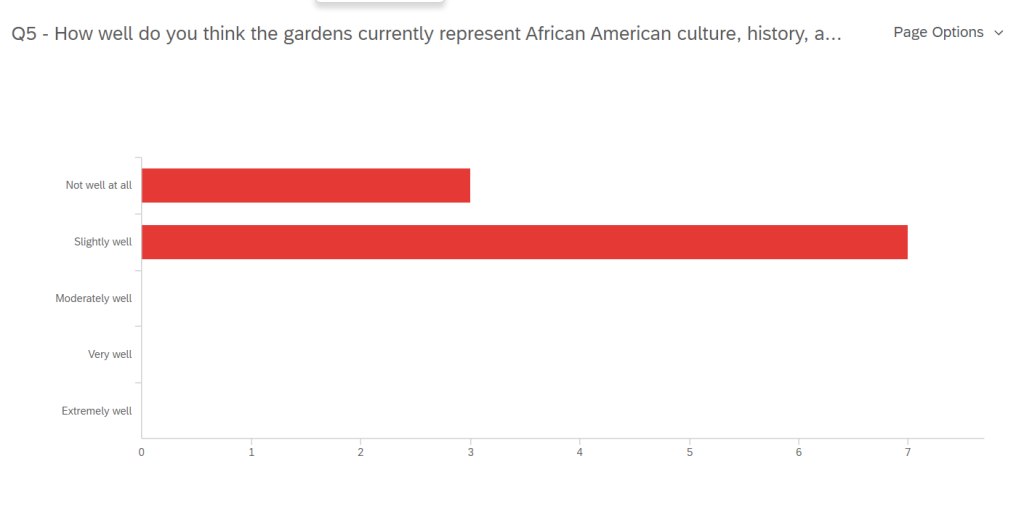Creating our surveys was a long process that needed a lot of patience and careful refining. Getting good answers from our survey participants was hard. We thought we got 33 responses at first, but only 11 were complete after checking more closely. More than half of the people who started the survey didn’t finish it. Still, the 11 complete responses gave us enough insight at on the lack of African American knowledge at MOBOT.
We wanted to understand how the current employees at MOBOT see the lack of African American representation and knowledge in the herbarium. To do this, we asked questions like “What problems do you see in adding African American knowledge to the garden?” and “How well do you think the gardens show African American knowledge and contributions?” Most answers were similar.

A visualization of things the staff has seen at the garden that represent AA knowledge.

This clearly shows that the employees agree that there is a major lack of Black knowledge in the garden.
We also wanted to be clear about what we meant by African American knowledge. We defined it as “the experiences, history, culture, and contributions of people of African descent in America.”
In our research with the CODES team, we looked at the history of African American knowledge in the garden. We found that the work of enslaved people in botany is often not recognized or acknowledged. They didn’t get credit for their discoveries. We want to fix this by focusing on their stories and trying to make things right through our research. This semester, we used surveys to hear directly from MOBOT. We asked questions like “How well do you think the gardens show African American culture, history, and contributions?” and “What can be done to add African American knowledge to the garden’s work?”
From looking at the survey and our research, we found some themes. Many people think the garden does an okay job at showing African American knowledge, but some think it doesn’t do well at all.
One big theme was that people want to see more diverse events and programs in the Gardens. They want more things that celebrate Black culture, history, and contributions. For example, one survey response said, “Put up signs all around the garden. Celebrate African American holidays, history, community, events, and employees. Make it easier for everyone to come to the garden.” This is important because botanical gardens are mostly about plants, but they should also be places for different cultures to share and celebrate.
When I talked to MOBOT employees, I noticed that donors are important to the garden. Most donors are older, white, and rich. Because they can choose where their money goes, African American knowledge isn’t a big priority for them. It would be good to have more diverse events and programs in the Gardens. There aren’t many diverse staff members, and donors could help with this. They could give money for scholarships and programs for African American students and researchers who want to study plants. This could help make sure that African American knowledge is respected and included in the botanical community. Many of the survey participants were white, so it’s still important to make the garden more diverse.
In the future, our research shows that MOBOT needs to think about and fix the unfair treatment of enslaved people in the past. This could mean making programs and exhibits that talk about the work of enslaved botanists, working with their descendants, and making rules that try to make things fair. By focusing on these people’s stories, the Garden can become a more fair and welcoming place for everyone who visits.